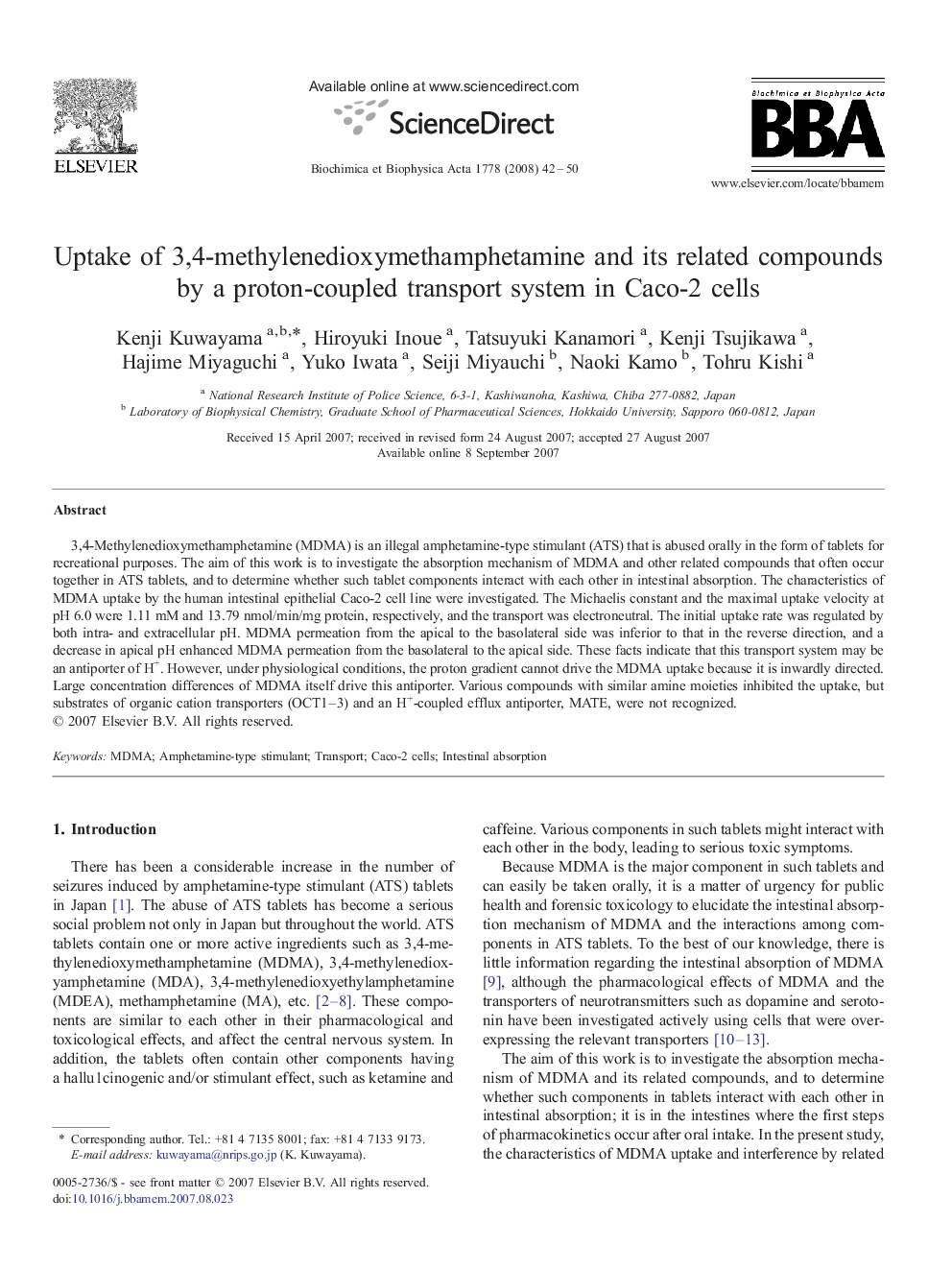| کد مقاله | کد نشریه | سال انتشار | مقاله انگلیسی | نسخه تمام متن |
|---|---|---|---|---|
| 1945543 | 1053268 | 2008 | 9 صفحه PDF | دانلود رایگان |

3,4-Methylenedioxymethamphetamine (MDMA) is an illegal amphetamine-type stimulant (ATS) that is abused orally in the form of tablets for recreational purposes. The aim of this work is to investigate the absorption mechanism of MDMA and other related compounds that often occur together in ATS tablets, and to determine whether such tablet components interact with each other in intestinal absorption. The characteristics of MDMA uptake by the human intestinal epithelial Caco-2 cell line were investigated. The Michaelis constant and the maximal uptake velocity at pH 6.0 were 1.11 mM and 13.79 nmol/min/mg protein, respectively, and the transport was electroneutral. The initial uptake rate was regulated by both intra- and extracellular pH. MDMA permeation from the apical to the basolateral side was inferior to that in the reverse direction, and a decrease in apical pH enhanced MDMA permeation from the basolateral to the apical side. These facts indicate that this transport system may be an antiporter of H+. However, under physiological conditions, the proton gradient cannot drive the MDMA uptake because it is inwardly directed. Large concentration differences of MDMA itself drive this antiporter. Various compounds with similar amine moieties inhibited the uptake, but substrates of organic cation transporters (OCT1–3) and an H+-coupled efflux antiporter, MATE, were not recognized.
Journal: Biochimica et Biophysica Acta (BBA) - Biomembranes - Volume 1778, Issue 1, January 2008, Pages 42–50